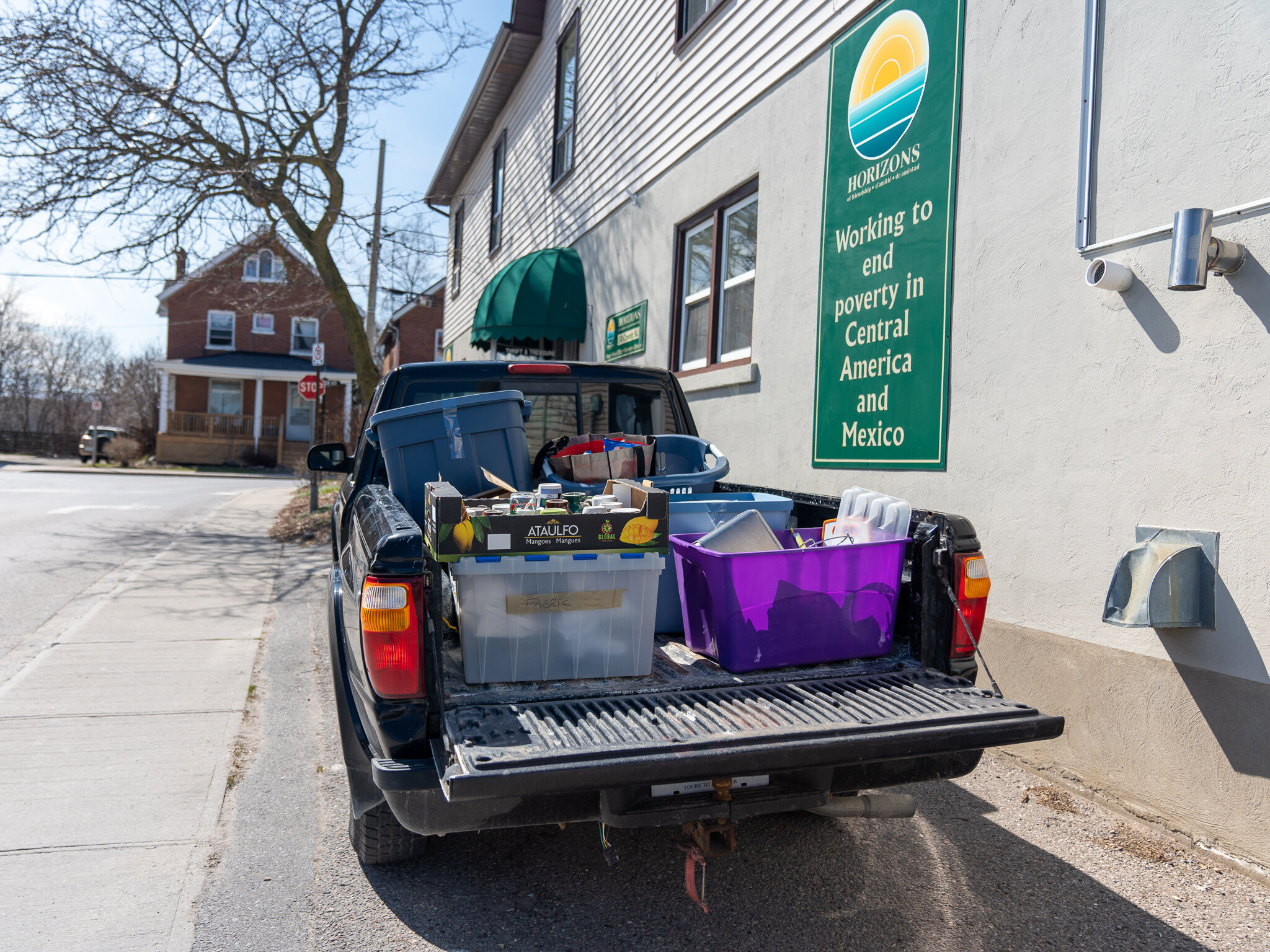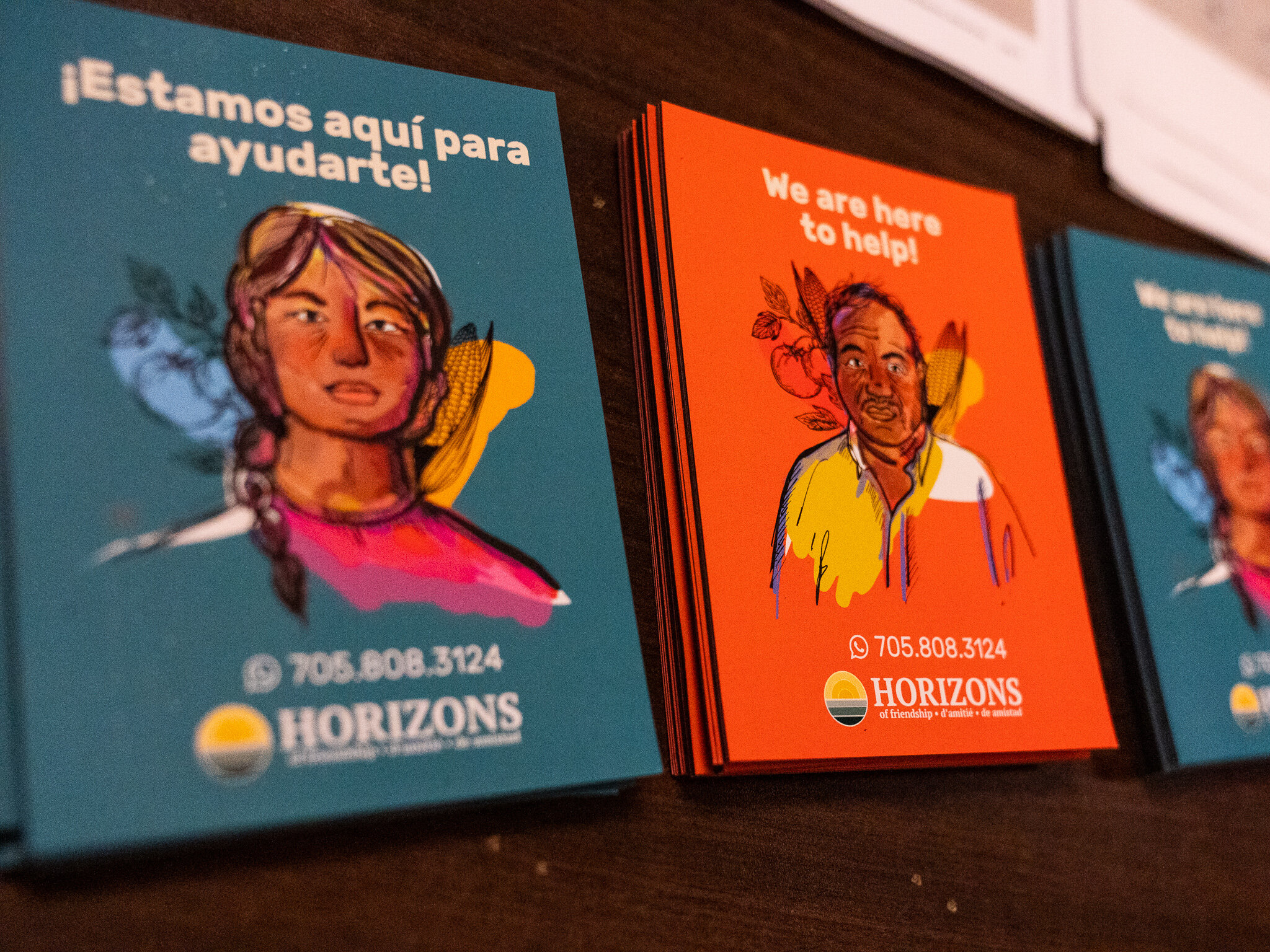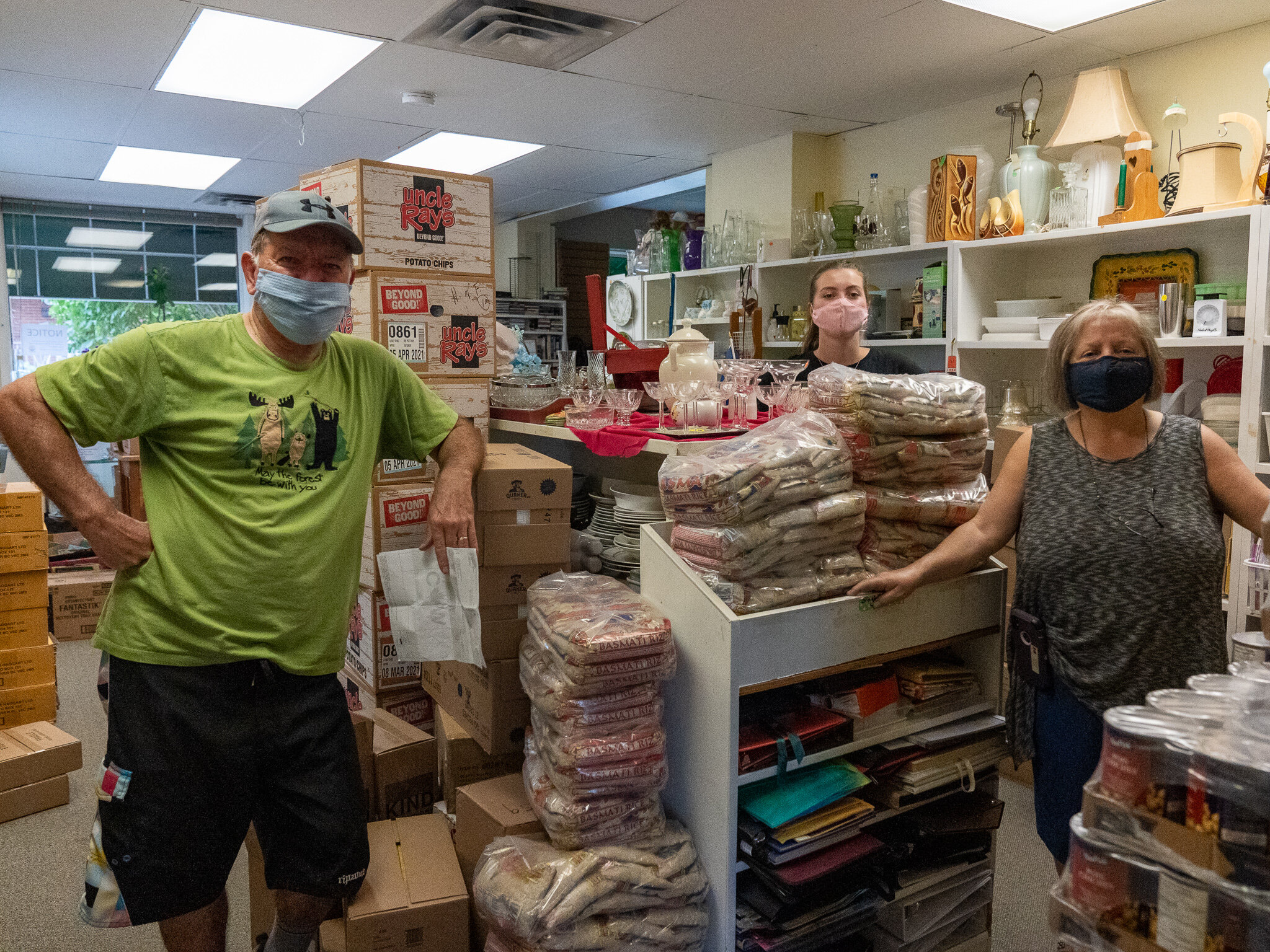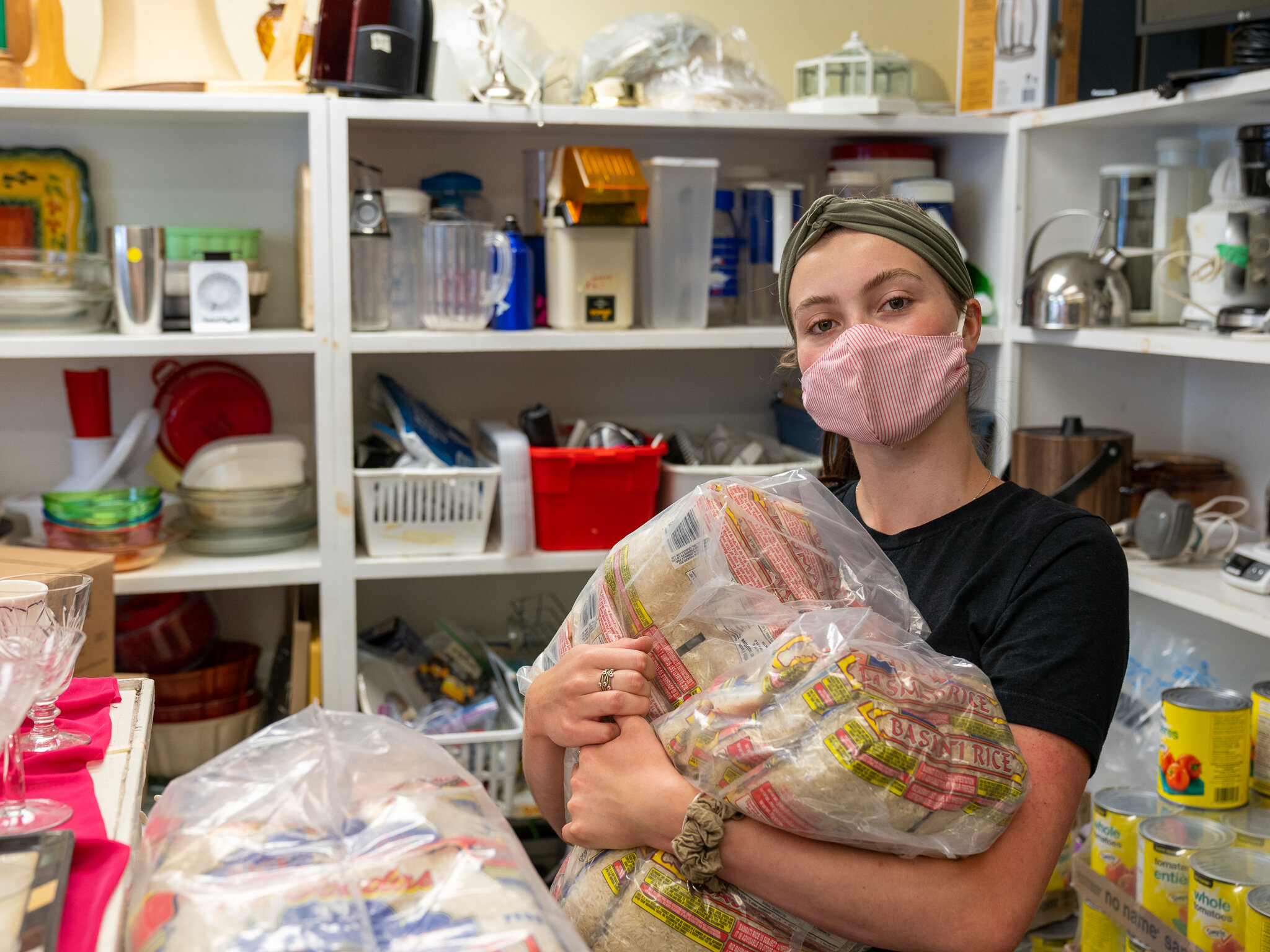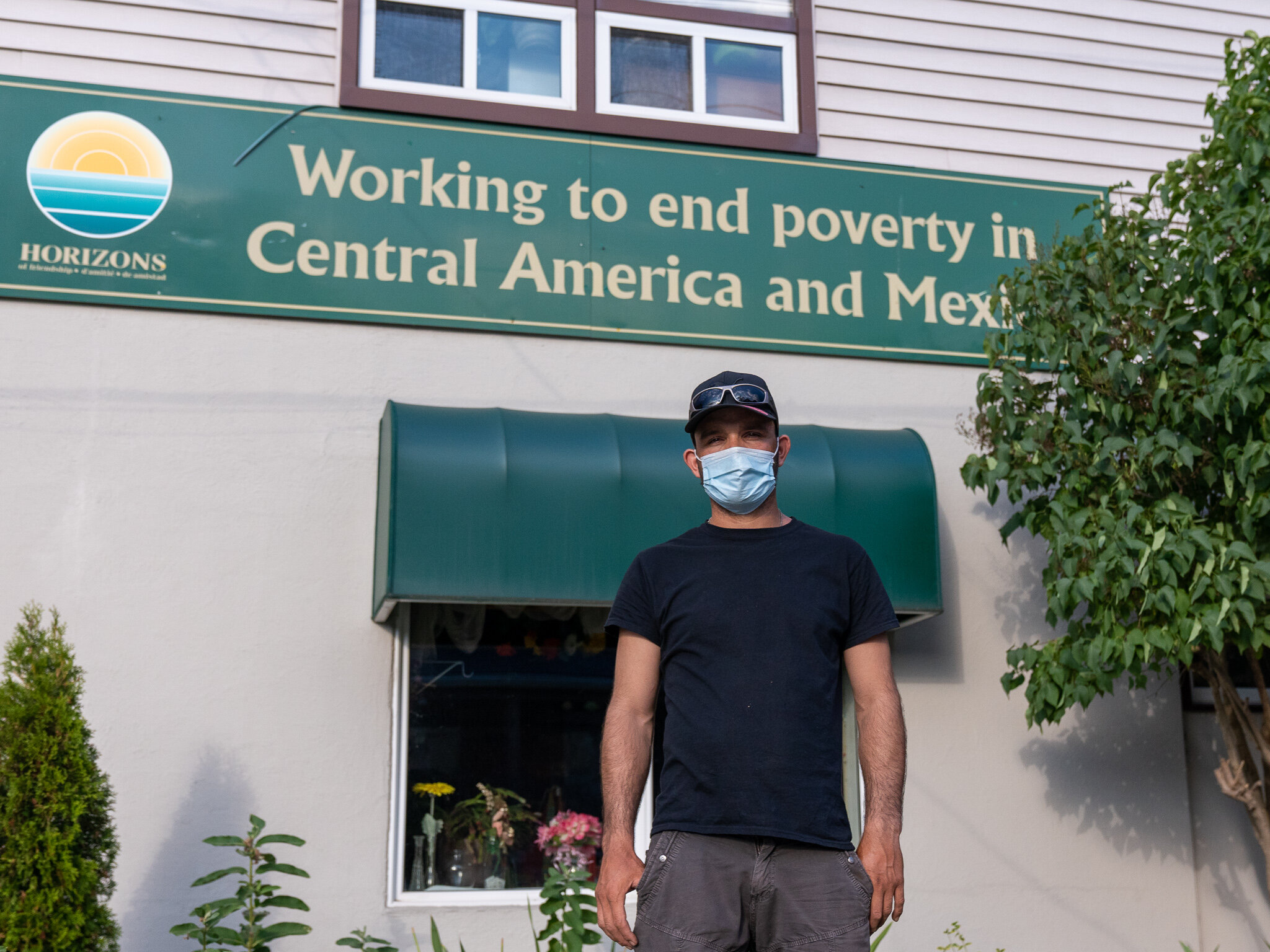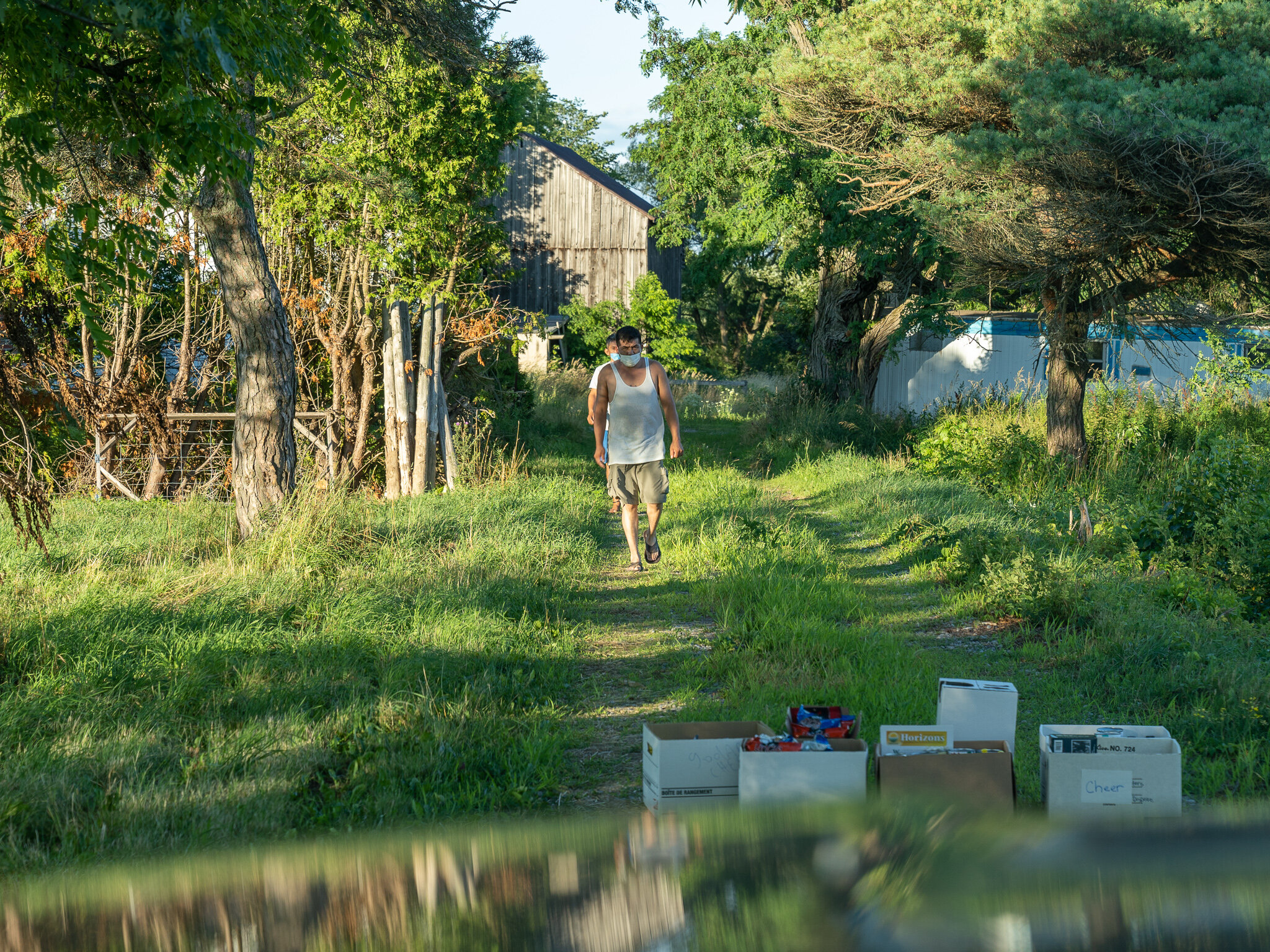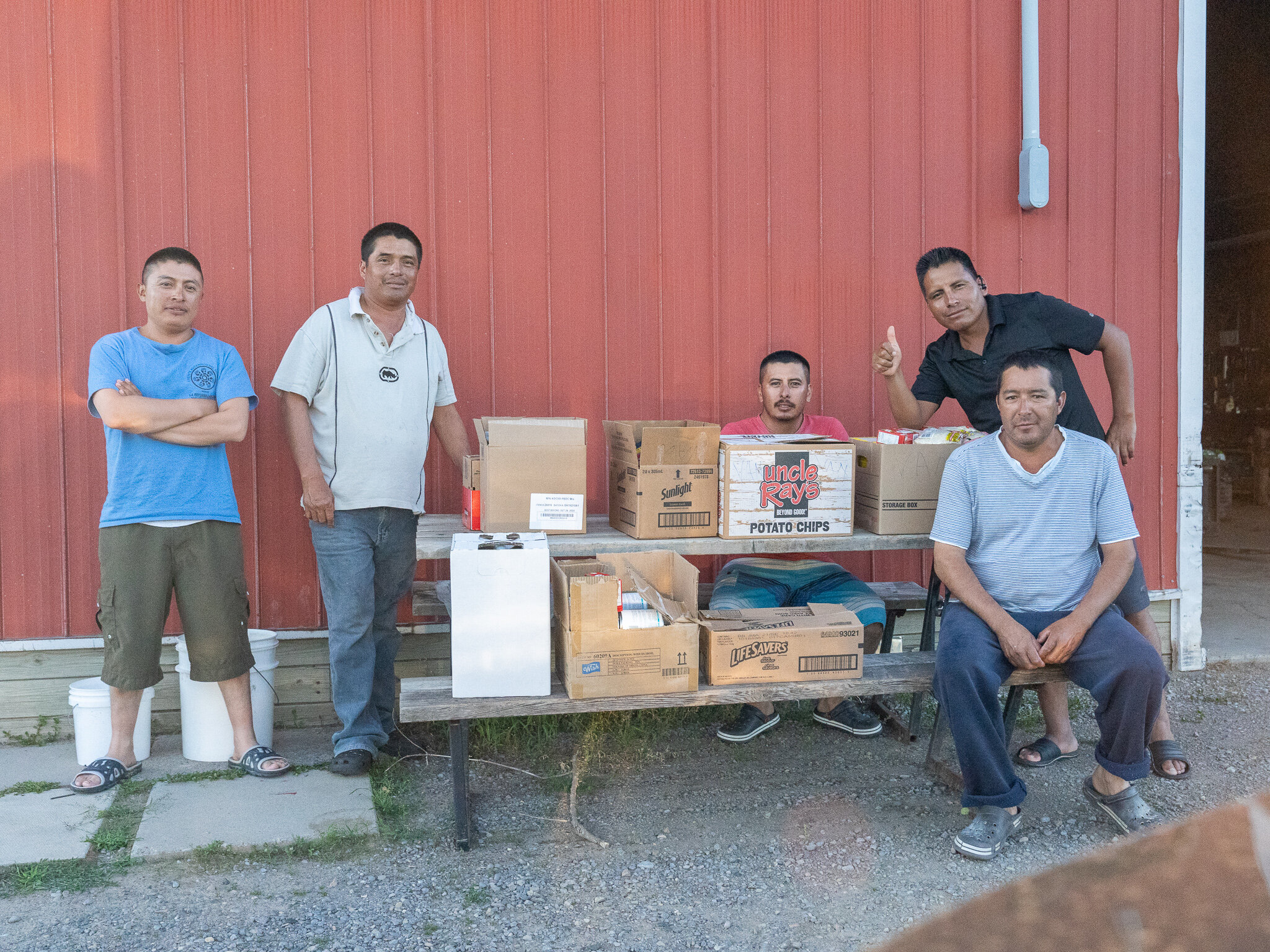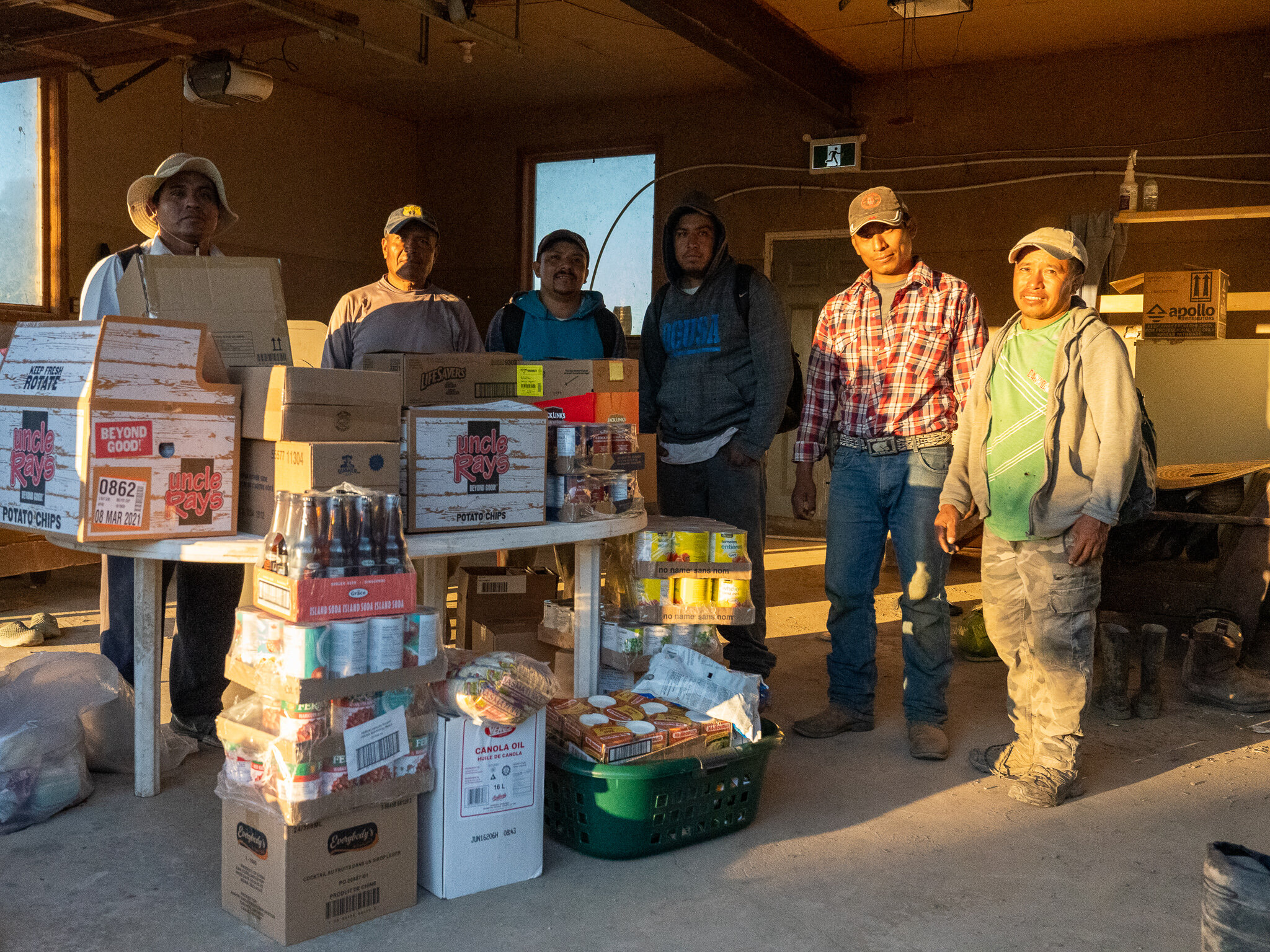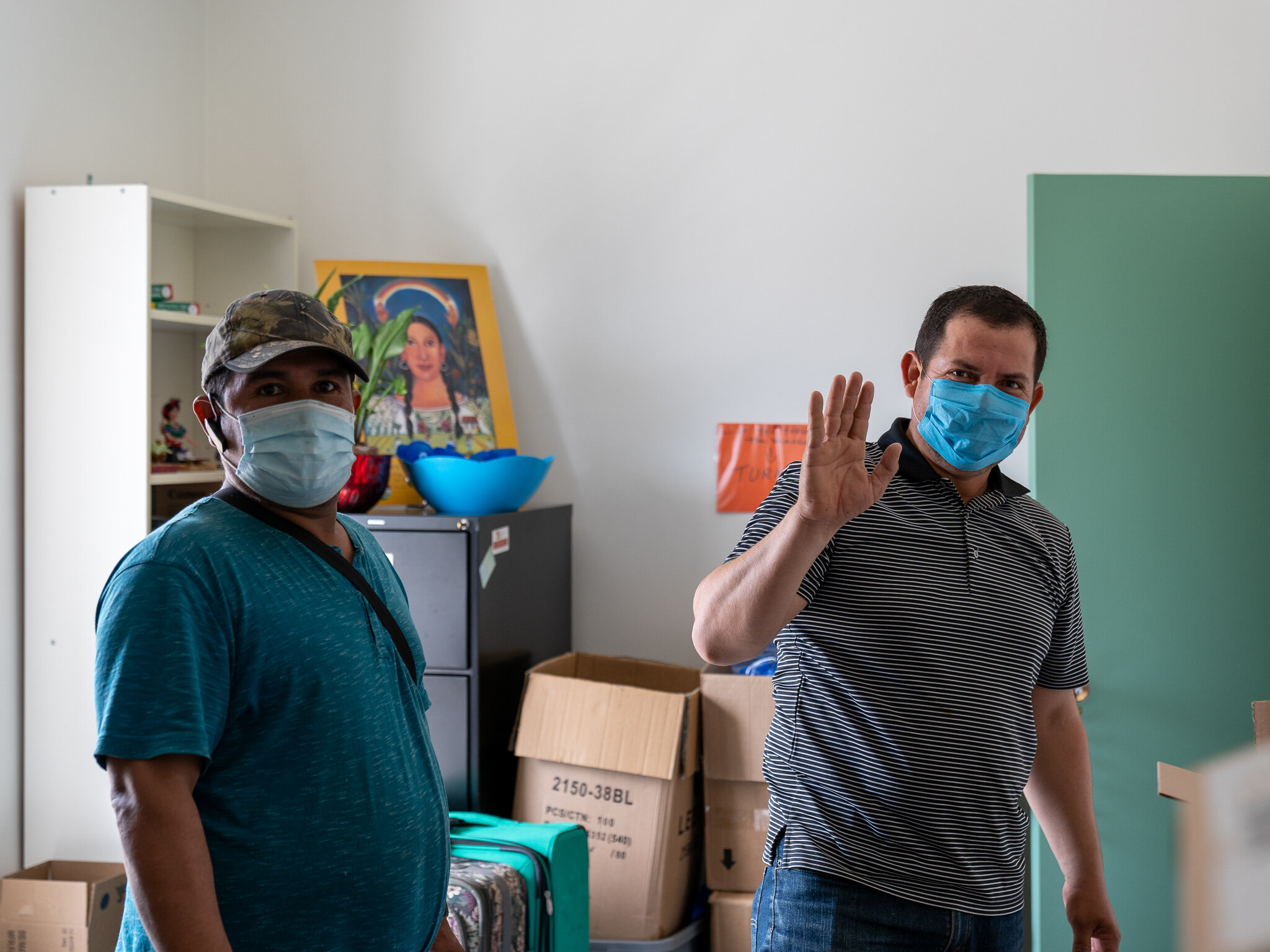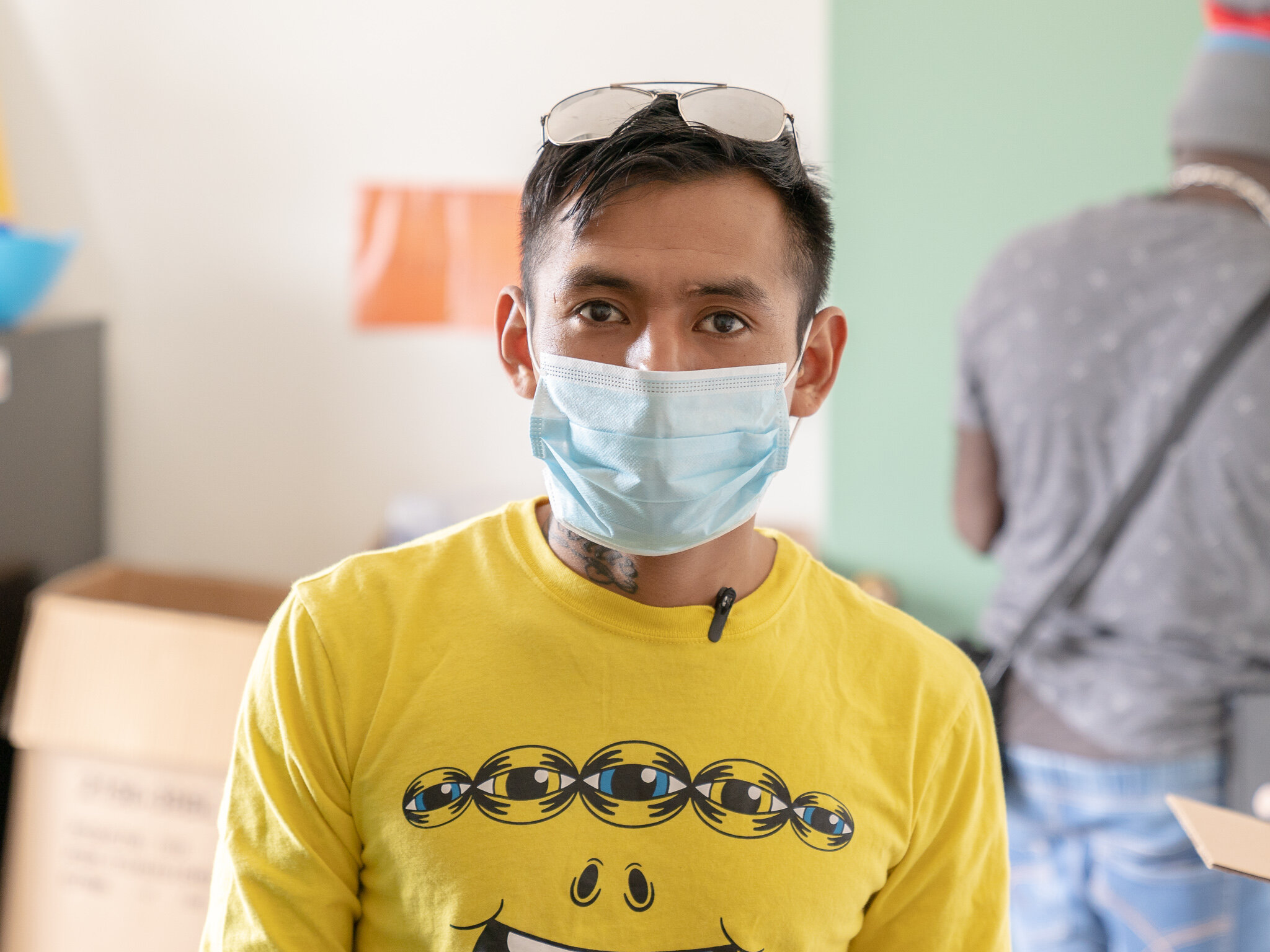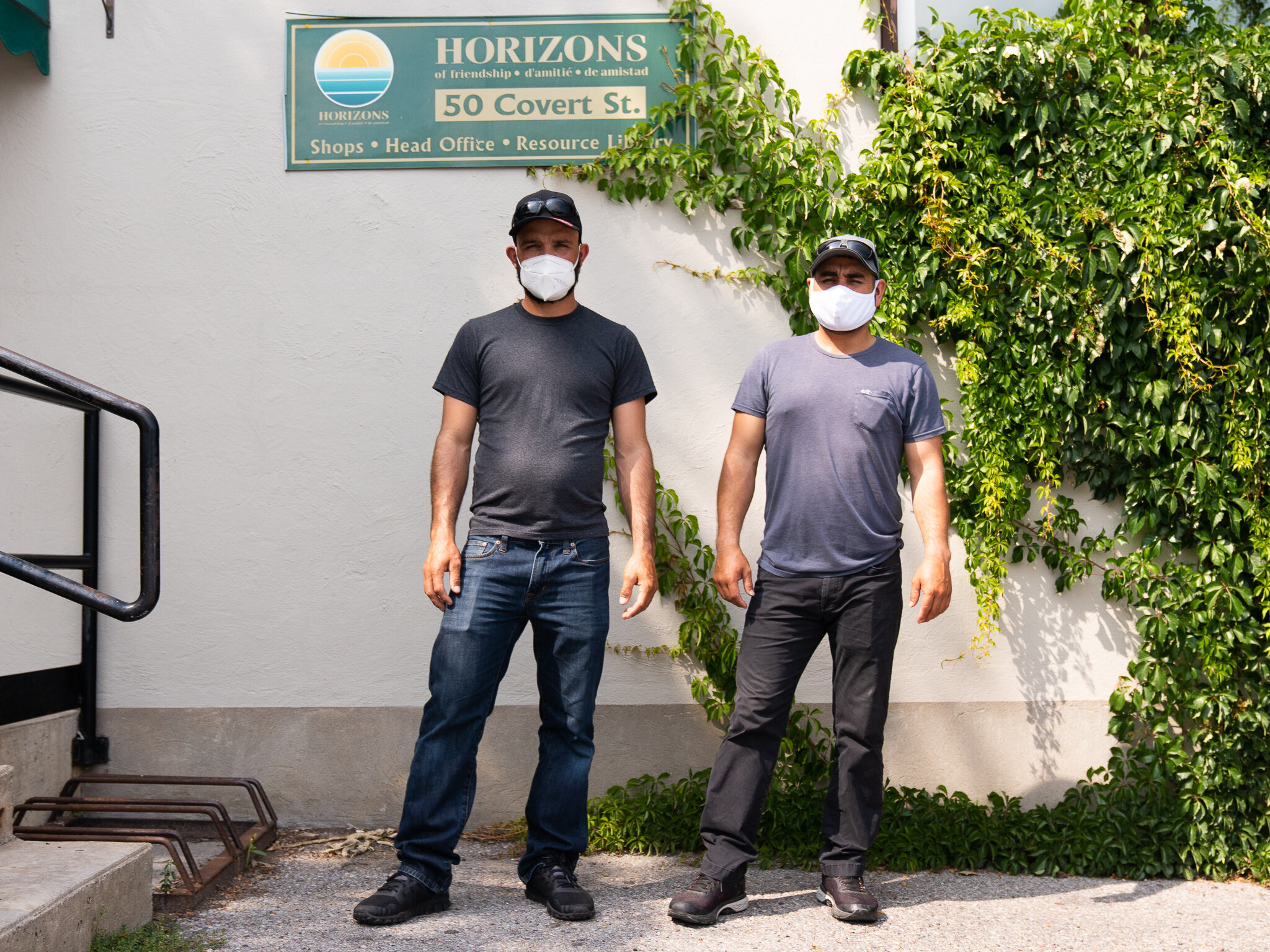The silent fight for migrant workers' pandemic rights
Amid the COVID-19 pandemic, migrant workers continue to face unexpected — and alarming — hurdles as they arrive and work in Canada and Northumberland County.
Ernesto (left) and Julian (right) pick up some care packages at the Horizons of Friendship office in Cobourg, Ontario.
It’s been a tough year. Migrant workers arrived earlier than usual to Northumberland County, some arriving as soon as March in the Brighton area. The COVID-19 virus was making news at that point, but its proliferation in Canada was only just beginning. What followed has been a complete whirlwind — a time of quickly adapting to new realities, and struggling to provide support to a population that lives in the fringes of our community. It hasn’t been easy.
As the pandemic picked up in Canada throughout March and April, new rules and regulations came into effect to curb the spread of COVID-19. People returning from abroad were required to quarantine for 14 days, as per the regulations stipulated by Canada’s Quarantine Act. For incoming migrant workers, this meant their arrival in Canada would be much more complicated and taxing. For us at Horizons of Friendship, the safety guidelines required that we empty our office space and all work remotely, like so many people across the country.
Beginning in early March, migrant workers departed their home countries of Jamaica, Mexico, Guatemala, and other Caribbean States and arrived at Pearson International Airport in Toronto, Ontario. Many workers were then collected in a “quarantine-style bus” that dropped them off across Ontario. Upon arrival to their residence here in the Northumberland, migrant workers were expected to remain in their new places of residence until the 14-day quarantine period was completed. Under these circumstances, farmers and agricultural employers were expected to assist migrant workers with accommodations and food — which often came at an unfortunate cost to the migrant worker.
“Ask family, a neighbour or friend to help with essential errands (e.g., picking up prescriptions, buying groceries),” wrote Public Health Agency of Canada, How to Quarantine (Self-isolate) at home.
When more migrant workers began to arrive in April, the Horizons of Friendship phone started to ring. We learned that many workers were being given only the bare necessities to live, and weren’t receiving certain care items, like culturally-relevant groceries or adequate personal protective equipment. Most farmers and agricultural employers in Northumberland worked hard to ensure their workers were taken care of, but certain basic needs weren’t being met.
“I’d have folks texting me full grocery lists, and some workers asking me to pick up medications from the pharmacy,“ said community outreach officer Daniel Quesada.
“What struck me the most is that they wanted food that reminded them of home. Jalapeños to make their pico de gallo, tortillas, cilantro, salsa de adobo — they were missing food that is a part of their culture, their identity as Mexicans.”
In some cases, workers undergoing their 14-day quarantine were charged a compulsory $300 meal fee by the employer, deducted from their wages so that the employer could provide meals. Some migrant workers weren’t happy with this, claiming they were being overcharged for food that was of poor quality. As the media outlet Vice News put it, migrant workers were being fed “crappy food.”
At Horizons, we were appalled to learn of these insufficient quarantine conditions. In response, we developed a drop-off delivery system for the folks completing compulsory quarantine. Through the spring and summer months, we have completed dozens of grocery and prescription drop-offs at farms and residences across Northumberland County, all while observing social distancing protocols to ensure that all involved felt safe and secure.
Care packages and some bedding items dropped off at the end of the driveway of a residence housing migrant workers in Northumberland County.
However, Horizons of Friendship doesn’t have the resources to help bridge the gap for all quarantining migrant workers in Canada. As a result of this continued government oversight in care, the basic needs of migrant workers across the country aren’t being met.
Just this week, The Ontario Labour Relations Board ruled in favour of a migrant worker who was fired for speaking out about health and safety issues at the farm where he was employed. These fights for basic workplace protection should not be happening.
Horizons of Friendship is proud to join the public chorus calling on the provincial and federal governments to enact swift and sweeping policy changes that will protect the health, safety and wellbeing of migrant workers.
We ask that you, as a supporter of Horizons, join in our fight for workers’ justice by applying pressure to your local officials and spreading the word about this concerning pattern wherever possible.
We can’t support migrant workers in our community alone.
We rely on so many incredible organizations and individuals every to help us in our fight to support the health and legal status of migrant workers in our community. For the 2020 Migrant Worker Outreach Program, we want to thank the following organizations and people:
United Steelworkers Canada, and United Steelworkers Humanity Fund for their financial and material donation to the project.
The Ontario Public Service Employees Union (OPSEU) and OPSEU Solidarity Fund for their financial donation to the project.
LiUNA! 182 Local for the financial donation to the project.
The Glen Colborne Fund at the Toronto Foundation for their financial donation to the project.
The Town of Cobourg for their financial donation to the project.
The Ursuline Sisters of Chatham for their financial donation to the project.
The Canadian Staff Union for their financial donation to the project.
The Rotary Club of Port Hope for their financial donation to the project.
The Community Health Centres of Northumberland for their continue support and partnership in providing free and confidential health care to migrant workers.
The Northumberland Community Legal Centre for their continue support and partnership in providing free and confidential legal support to migrant workers.
Northumberland County Settlement Services and Food4All for their generous donations of food and supplies for migrant workers.
The Rose Quest for donating new and unused toiletries for migrant workers.
The entire Horizons of Friendship community, who stepped up and when it mattered most by providing one-time and monthly donations to support this project and our entire organization.



